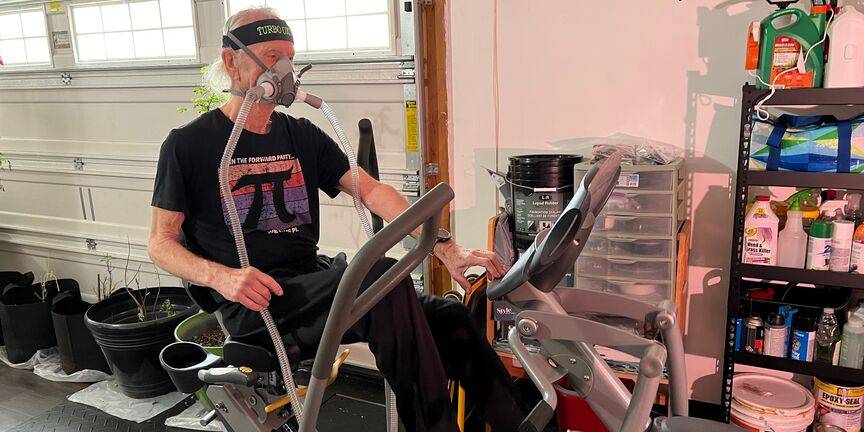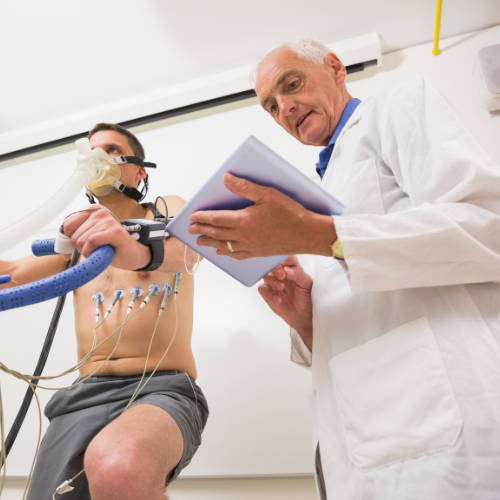
Exercise Smarter to Boost Your Mental Health
0 Comments
Exercise Smarter to Boost Your Mental Health
This article discusses how exercise can enhance mental well-being and offers insights on the capabilities of EWOT for improved cognitive function.

It’s a no-brainer that regular physical activity promotes overall wellness. Most of us are aware of the physical benefits of exercise: weight management, improvement in cardiovascular health, strengthening of muscles and bones, increased energy, and reduced risk of diabetes and certain cancers, to name a few.
But, the benefits of breaking a sweat do not end at just physiological fitness. Did you know exercise can boost your mood, improve your sleep, keep your memory sharp, and help you cope with anxiety, depression, and stress?
Physiological health and psychological health are closely related. What is good for your body is often good for your mind. Believe it or not, exercise is a powerful tool to tackle psychological issues, improve energy levels and get the most mileage out of your life.
Feeling lazy to work out daily or unsure of where to start?
The five mental health benefits of exercise below will have you tying up your shoelaces and making a move.
Exercise can act as a tool against depression and anxiety:
Did you know even moderate exercise can treat mild-to-moderate depression as effectively as antidepressant drugs with zero side effects?
Recent literature has demonstrated that higher physical activity levels reduce symptoms for persons with depression and anxiety. Exercise promotes neural growth, promotes a sense of calm, reduces inflammation, triggers anti-anxiety effects, and releases endorphins (feel-good chemicals), as well as serves as a distraction.
Exercise is a healthy stress reliever:
According to the Anxiety & Depression Association of America, exercise effectively relieves stress, tension, and weariness and elevates your mood. When stress affects your brain, the remaining body parts also feel the impact.
If your body feels good, so does your mind. Increasing heart rate stimulates the norepinephrine synthesis that, in turn, results in reducing stress and improving cognition and mood. Physical activity also improves your body’s response to stress.
Exercise gives you a whopping boost of self-esteem and confidence:
Studies have shown a positive relationship between exercise and self-esteem. In the short-term, exercise acts as a mood lifter and puts you in a positive state of mind. As a long-term effect, physical activity makes you feel good about your physical self and fitness levels.
You’ll definitely feel self-satisfaction and a confidence boost.
Exercise promotes better sleep:
Tossing and turning all night long?
Don’t worry; try sticking to a regular workout routine. How does exercise influence sleep? Exercise makes your core body temperature rise.
Once you finish your workout, the body temperature decreases, and this drop offers calming effects. This can result in less sheep-counting and more shut-eye. Exercise during the day leads to the earlier release of melatonin, and you may fall asleep quicker. Regular physical activity positively impacts your psychological wellness and mood, both of which can be connected to your sleep quality.
Exercise sharpens your memory:
When you get your body moving, the feel-good neurotransmitters (or endorphins) are released, and this can improve your cognitive abilities, enhance concentration, and promote brain cell growth.
Research has suggested that both acute and chronic exercise improves memory performance.
How EWOT Enhances Your Psychological Health?
Integrating Exercise With Oxygen Therapy (EWOT) into your exercise routine can give your mental well-being an extra boost. With EWOT, you're not just working out your body – you're also supercharging your brain. By flooding your brain with higher levels of oxygen, EWOT has the potential to enhance cognitive functions like memory, decision-making, and concentration.
The surge of oxygen stimulates the release of endorphins, the body's natural mood lifters, contributing to reduced stress and an improved sense of happiness. In short, EWOT offers a dual benefit – an upgraded workout for your body and a mental boost for your mind, all in a single, accessible routine.
Try incorporating oxygen into your exercise regimen, and EWOT will let you start your new life of energy.
Workout Smarter with Turbo Oxygen and Recharge Your Sense of Well-being!

Meet Mike White
Meet Michael Grant White, the Optimal Breathing Coach and get actionable insights on your breathing development, health and longevity

How Good is Your Breathing?
Want to know the future of your health and longevity?
Most Popular Articles

April 12,2021

Feb 10, 2022

Attain satisfactory levels of exercise without aggravating existing heart.
Understand and explore EWOT - Exercise with Oxygen Therapy.
The Optimal Breathing
Self Mastery Kit
Breathing & Oxygen Articles
- Breathing
- Oxygen
- Mold Could Be in Your Home Right Now. Are You at Risk?
- Beat Work Stress the Right Way
- Bad Breathing Causes Asthma- Here's What to Do!
- Optimal Breathing, Autism & Brain Development
- Why Breathe Better? Bad Breathing Makes You sick or Sicker. Learn To Breathe Better Now
- Cure your Breathing Problems with Breathing Exercises
Meet & Work With Our Practitioners
Get personal help to improve your health
and vitality.
Get expert coaching and guidance from our Optimal Breathing experts.
Whether you are looking to have an Integral Breathwork expert, Voice Coach
or someone who specializes in anxiety or depression, look no further.





